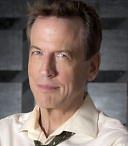- Shopping Bag ( 0 items )
From Barnes & Noble
For most of us, the Atomic Era began with the Manhattan Project and ended with the cessation of the Cold War. For award-winning author Craig Nelson (Rocket Men; The First Heroes), it began with Wilhelm Röntgen's 1895 discovery of x-rays and sizzled to a radioactive climax in the aftermath of the Fukushima meltdown. His new release The Age of Radiance unfolds the history of an era that both threatened universal apocalypse and promised a plentiful, inexpensive new source of energy. This rich, brisk narrative spotlights the geniuses behind this true revolution, but doesn't neglect its centrality to issues of war and peace. An anecdote-rich book; certain to receive media attention.





Overview
“A thrilling, intense, and disturbing account of the atomic era, from the discovery of X-rays to the tragic meltdown of Japan’s Fukushima Daiichi nuclear power plant…Rich with powerful images and fraught with drama” (The Christian Science Monitor).
When Marie Curie, Enrico Fermi, and Edward Teller forged the science of radioactivity, they began a revolution that ran from the nineteenth century through the course of World War II and the Cold War to our current confrontation with ...